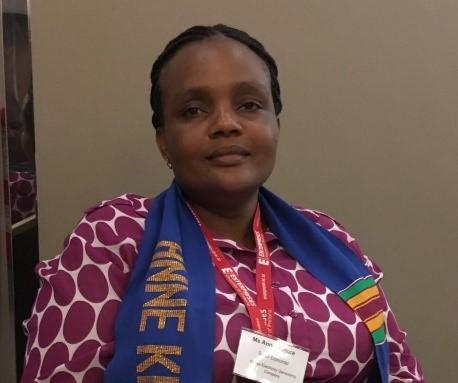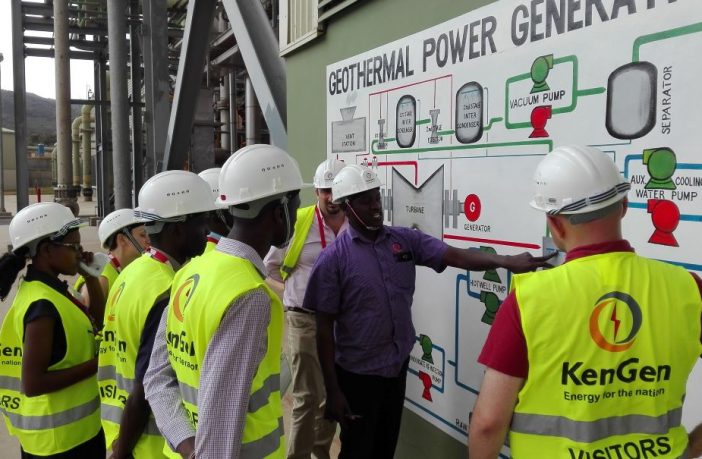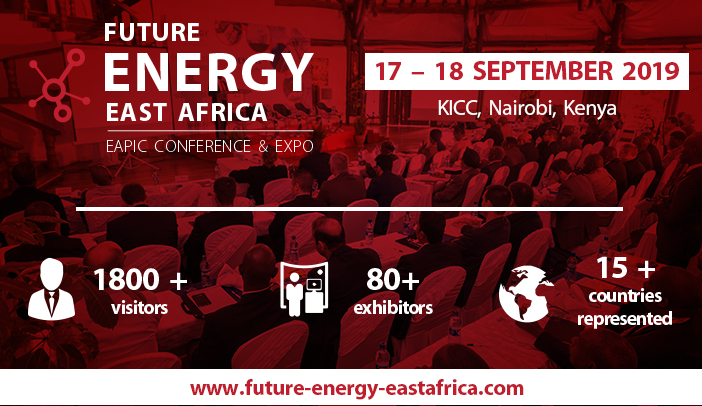- Exclusive interview with Anne Kiburi, Senior Economist & PPP Officer at KenGen (Kenya Electricity Generation Company).
- Anne will be addressing delegates on “The role of the private sector in geothermal development in Kenya and East Africa.” during the upcoming Future Energy East Africa conference in Nairobi in September.

Pic: Anne Kiburi, Senior Economist & PPP Officer at KenGen.
Let’s start with some background on yourself, your organisation and the kind of work that you do in the energy sector.
I am an Economist and PPP Officer working with Kenya Electricity Generating Company (KenGen). I have been working in the organisation since 2011 and I have been involved in the Preparationof National Energy plans as a member of the Technical Committee for the Least Cost Power Development Plan. I have also been involved in the preparation of the company’s strategic plan since 2012.
Before joining the energy sector, I had worked for seven years in the financial sector/ banking sector doing projects evaluation for financing.
I have participated in the development of Renewable energy projects which include Geothermal, Wind, Solar and Hydroelectric projects being developed by KenGen. I have adequate experience in developing financial models for various generation modes and technologies, defining the revenues that meet the firm’s revenue requirements and the lenders Debt Service Coverage Ratio threshold. I have participated in numerous feasibility studies that evaluated, structured and closed various utility-scale projects among them being Olkaria Geothermal Power Plants currently under construction, 90MW Karura Hydro project, 400MW Isiolo Wind Project, Optimisation of the Well Head Project and Solar PV Feasibility Study.
Any exciting projects that you are currently involved in that you can share?
I was involved in the initiation of the first PPP Project (140MW Olkaria PPP Project) within the company to be procured under the PPP Act 2013. I was involved in the procurement of a Transaction Advisor for the project and the preparation of the feasibility study as stipulated in the Act. The project is awaiting approvals to proceed to procurement phase.
What in your view are the main challenges in the power sector in Kenya right now? And East Africa?
The main challenges are:
- Slowed demand/Consumption growth
- Financing of the projects
- The risk perception for Kenya and East Africa
- Technical capacity
What in your view are the main opportunities currently?
- Operationalisation of the East African Power Pool
- High Renewable Energy potential in Kenya and EA
- The main opportunities lie in the development, financing and construction of renewable energy projects as EPC contractors, financiers, sponsors etc.
What is your vision for the industry?
To have a 100% renewable technologies deployment and a fair share of private sector participation.
What surprises you about this sector?
How far the sector in Kenya has come within a very short time, which demonstrated the power of government commitment. Before 2010 the supply of energy was very low and the connectivity levels were below 30%. Now we have supply, which is matching demand and the connectivity levels are now above 70% in less than 10 years.
At the upcoming Future Energy East Africa, you are part of the conference programme. Can you give us a sneak preview of what your message will be at the event? Or what your expectations are?
Kenya and East Africa have high geothermal energy potential. The resource has the potential to provide low cost and low carbon, baseload, reliable and flexible electricity. However, the development of this resource is capital intensive, especially at the preliminary phases. There is a need for private sector participation in geothermal development to enhance the deployment of this resource. Development and use of various risk mitigation tools and early mover insurances are important to support the private sector during the exploration phase.
My expectation is to create awareness on the role of the private sector in geothermal development and the opportunities available.
My presentation title is “The role of private sector in Geothermal Development in Kenya and East Africa.”
Anything you would like to add?
There is a need for more cooperation between Kenya and East Africa with the developing countries to ensure technology and capacity transfer, which enhance the sustainability of the developments in the energy sector.
Author: Annemarie Roodbol
This interview was was originally published on ESI Africa and is republished with permission with minor editorial changes.
Catch Anne Kiburi at Future Energy East Africa Conference and Expo taking place on the 17 – 18 September 2019 at the Kenya International Convention Centre in Nairobi. Register to attend the exhibition here, it’s free.












